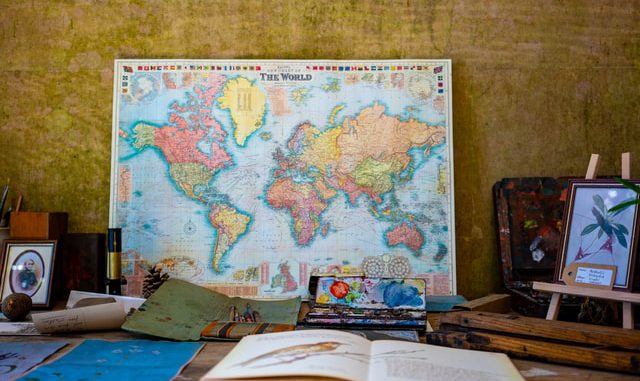

Languages do work in the world. This idea is at the heart of the flagship research project Language Acts and Worldmaking. The project has the massive ambition of transforming the way languages and their study is perceived and of promoting the study of languages in society. Languages shape our world and we are shaped by the languages around us. In our project Language Acts and Worldmaking we understand language as a material force in the world; by that we mean that language travels, it changes, it informs our ways of thinking, our beliefs, our ideologies, the ways we live in and experience the world. Look at our website and see the huge amount of work we have done locally and globally.
In Language Acts and Worldmaking we work very hard to turn our research into practice. As a student at King’s you can become actively involved in this work of transforming our understanding of the work languages do in the world. Our students have worked with us as Student Ambassadors, for example: supporting our conferences; being part of an innovative programme of language study and arts activism to empower young Latin American women; developing a new service module for the undergraduate curriculum; working with us in our language workshops for primary and secondary schools. Each one of these activities requires you to use your language-learning skills in different scenarios and are socially-engaged ways of contributing to the work languages do in the world.
Worldmaking the Time of Covid-19

Most recently, a group of 20 students from Modern Languages and across the College are working us on the project Worldmaking in the Time of Covid-19. This project was created as a response to a call at King’s for rapid responses to the Covid-19 crisis. While most of the responses were, inevitably, from the sciences, we wanted to ensure that Arts and Humanities, Modern Languages included, are recognised as having crucial contributions to make to our understanding of our national and global response to the pandemic. Working across 12 languages – Arabic, Chinese (Cantonese and Mandarin), English, French, German, Hebrew, Italian, Japanese, Korean, Portuguese, and Spanish – students are digitally mining press in these languages to provide the data for an understanding of the representation of the pandemic.
Our aim is to work out and analyse how the crisis in narrated across the globe. This is a cultural, historical, geo-political necessity and only students of languages can provide the skills to lead this work. Our students are co-researchers and we are working collectively, across virtual platforms, bringing together a fascinating vision of how the narration of coronavirus / Covid-19 has moved across the globe. Students will be co-authors of our final report and we know that this work will have an impact on how we understand the importance of having profound knowledge of local lived experiences, which can only come from understanding the languages in which these experiences are told.
We look forward to carrying on this work with our returning and new students.
To find out more about what Catherine does, see ‘On minute with… Professor Catherine Boyle’.
And if you want to practice your Spanish, listen to the lively podcast interview of Catherine’s PASIÓN POR EL TEATRO.

Leave a Reply